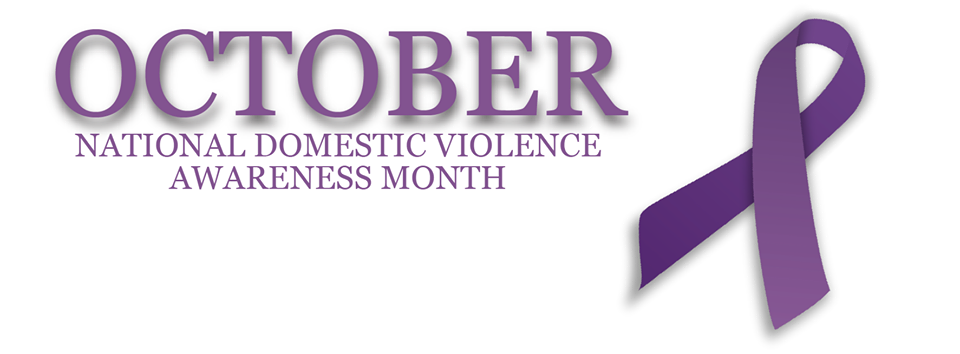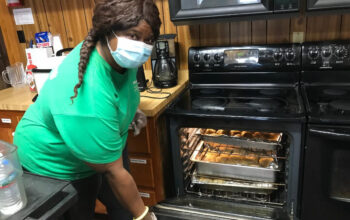Office Hosts Safe Harbor Speaker and Distributes Purple Ribbons
As part of its observance of Domestic Violence Awareness Month, District Attorney Warren Montgomery’s Office invited Sheri Eastridge, the community educator for the Safe Harbor Domestic Violence Program, to help staff members understand what victims often experience when such cases are prosecuted.
“She may not want prosecution,” Eastridge explained. “This is a huge barrier to all of us trying to serve victims.” “I see it every day,” added an Assistant District Attorney who attended the special presentation on Friday afternoon (Oct. 9) at the Covington office. “It’s either our fault, her fault, or the kids’ fault for calling 9-1-1. It happens every single day.”
Most domestic violence victims are women, and their reluctance to participate in the prosecution is often part of a cycle of abuse that makes her feel trapped, Eastridge said. The cycle usually begins with a so-called “honeymoon period,” when the abuser appears to be the perfect partner, saying and doing all the right things.
As the tension builds, he becomes more controlling, making rules—how to wash the dishes, where she can and cannot go, who she can talk to—and she tries to follow them. She plays close attention to what triggers him and tries to avoid the inevitable explosive argument and physical abuse, which is usually followed by his remorse and pleas for forgiveness.
“A bunch of promises are made,” Eastridge said, but the cycle just keeps on spinning. The control the abuser exerts is physical, sexual, verbal, emotional, and more often than not, economic, Eastridge said. The abusive husband or boyfriend is frequently the financial provider for the family, which is why many victims may resist helping to send him to jail and may refuse to cooperate with prosecutors. But sensitivity and understanding what the victim is facing can sometimes help her overcome such reluctance, Eastridge said. It helps when prosecutors contact the victim directly and in a timely manner. Providing detailed information about the court system and process also helps to win her confidence in the system.
Domestic violence is prevalent throughout the nation. One in three women has experienced some type of domestic abuse, according to the Violence Policy Center. For the second year in a row, Louisiana has the fourth highest rate in the nation of women killed by men, and the average age of the victim is 36. The state also has the highest rate in the nation of bystanders killed during a domestic violence incident.
Safe Harbor responded to 2,300 crisis calls last year, Eastridge said. The agency also provided temporary shelter to 72 women and referred 565 others to other services because its shelter was full.
Reducing the prevalence of domestic violence in the community will take all parties—victims, service providers, law enforcement, and prosecutors—working together. “It takes a community effort to address this issue,” Eastridge said.
In addition to Eastridge’s presentation, the District Attorney’s Office has provided information about domestic violence on its website to help raise awareness. Purple lapel ribbons also were distributed to staff members to wear in honor of domestic violence victims.
If you or someone you know is a victim of domestic violence and needs help, call Safe Harbor’s 24-hour crisis line at 985-626-5740 or 888-411-1333.





